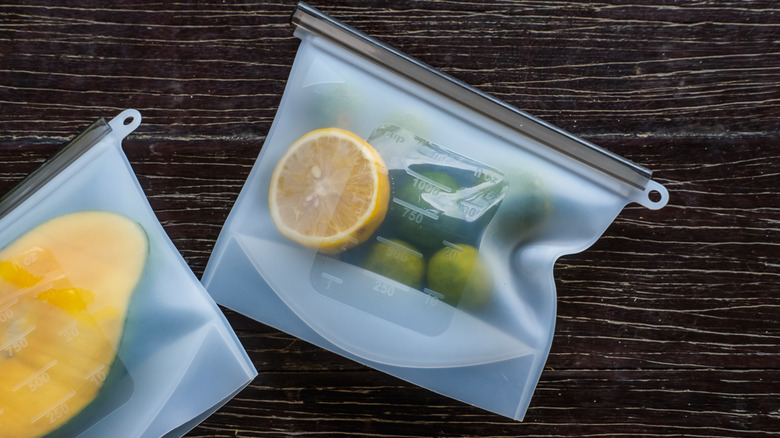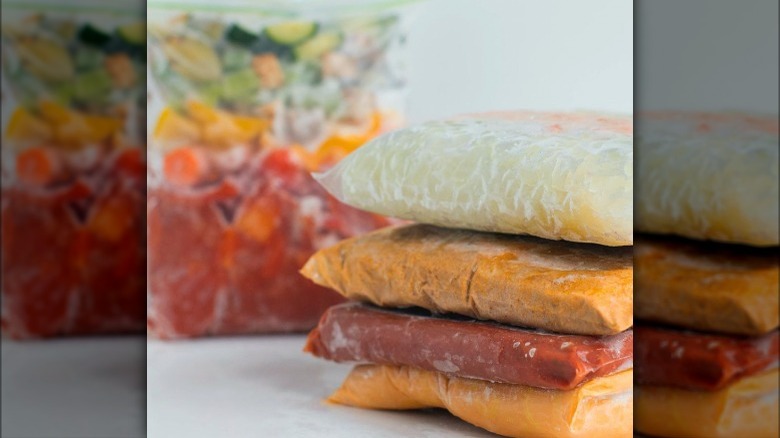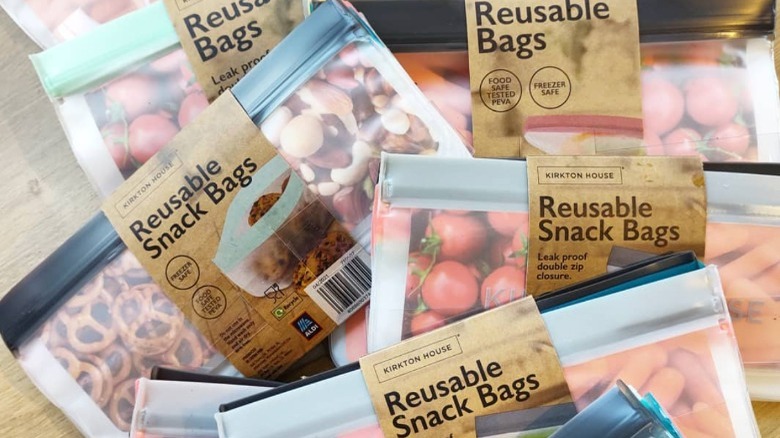The Case For Storing Your Leftovers Exclusively In Resealable Bags
It's always nice to end a dinner party with leftover food to be enjoyed throughout the coming week. But imagine your last guest leaves late into the night, and through the eye-rubbing and yawns, you commence the cleanup process, starting with packing up that leftover food to store in the fridge. You poke around through the dreaded drawer of mismatched containers, the corresponding caps virtually impossible to match up.
After finally placing your containers of choice and scraping the food inside, the tricky part has only just begun. Now, you must strategically place each container on the shelves, making sure there's room for everything and that nothing will be banished to the unreachable, unseeable depths.
With their finite solid shapes, food storage containers often take up more precious real estate in the fridge and freezer than is necessary, forcing us to play some real-life version of Tetris when placing them inside. But, what if there was a solution that allowed you to ditch the headache that comes with keeping those leftovers fresh?
A simple storage hack
Not only does this solution exist, but it also involves an item most households already have on hand: resealable bags. The material's flexibility helps the bags bend and fold to conform to the shape of the shelf and the surrounding contents. They can easily stack on top of one another, too, making use of both vertical and horizontal space. Resealable bags allow room for many more compartmentalized foods than those bulky, unadaptable glass and plastic containers.
At first glance, this approach may seem wasteful. Resealable bags are single-use plastic monstrosities, right? On the contrary — despite their disposable branding, most of these bags can be reused for different foods.
Alternatively, there are plenty of resealable bags on the market that are meant to be reused. If you plan to dedicate yourself to this method of food storage, a set of reusable bags may be a worthy investment.
Choosing bags that can get the job done
The obvious question is, how do these space-saving bags and their contents hold up over time? Those glass and plastic food storage containers are designed for long-term use, so it can be tough to trust that a sealed plastic bag will stack up, durability-wise.
With the overwhelming variety of resealable bags to chose from, it's important to ensure that the quality of the bag will allow for storage success. One of the key steps is making sure your resealable plastic bags are labeled as freezer-safe. This label signifies that the material is more thick and durable, allowing it to withstand frigid freezer and fridge climates while locking in freshness.
As for longevity, most disposable bags can withstand deterioration for at least a few months, or about four uses. Reusable silicone bags, meanwhile, can last as long as five years, or 3,000 uses.


